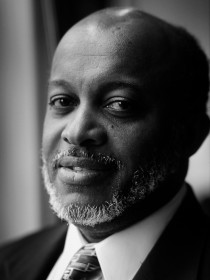Connect with Earl
About Earl
Smith's teachings and research focus on the sociology of sport, social stratification, criminal justice, and race. Smith has written several books on the impact of social inequality on Black families. His book Race, Sport and the American Dream, which has been published in three editions, remains the only book on the market that examines structural racism in the Sport World. On a regular basis he is consulted as an expert by the New York Times, USA Today, and a variety of other news outlets. He teaches courses on social stratification, race and ethnicity, social problems, race and gender, and sexuality and sports.
Contributions
In the News
Publications
Exposes the myriad of victims of wrongful conviction by going beyond the innocent person who has been wrongfully incarcerated to include the numerous indirect victims who suffer collaterally. Widens the net to also examine consequences for family, friends, co-workers, witnesses, the initial victims of the crime, and society in general—all indirect victims who are often forgotten in treatments of wrongful conviction.
Discusses based on hundreds of hours of observation in solitary confinement units and interviews with both those who are incarcerated and those who work in solitary confinement, the research uncovered the harm and trauma that solitary confinement has on both the prisoner and those who work there.
Makes a compelling case that the policing of Black bodies goes far beyond these individual stories of brutality. Connects the regulation of African American people in many settings, including the public education system and the criminal justice system, into a powerful narrative about the myriad ways Black bodies are policed. Calls attention to the ways class, race, and gender contribute to injustice, as well as the perils of colorblind racism—that by pretending not to see race we actually strengthen, rather than dismantle, racist social structures.
Examines gender-based violence in institutions, including on college campuses, in the military, in prison, in the Catholic Church, in politics and Hollywood and the ways in which these institutions protect abusers and fail to hold them accountable, thus allowing for the perpetuation of the violence.
Explores family violence throughout the life course, from child abuse and neglect to intimate partner violence and elder abuse. Pays special attention to the social character and institutional causes of family violence, asks students to consider how social inequality, especially gender inequality, contributes to tensions and explosive tendencies in family settings. Learns about individual preventative measures and are also invited to question the justice of our current social structure, with implications for social policy and reorganization.
Debunks many common myths about black families in America, sharing stories and drawing on the latest research to show the realities.
Examines the risk that race produces for wrongful conviction and ultimately for exoneration. Additionally, we note the importance of the racial composition of the crime - African American men accused of raping White women - on wrongful convictions and exonerations.
Provides a deeper and more precise understanding of the biases faced by re-entry felons in the labor market and work to address the key barriers to re-entry in hopes to aid in their elimination.
Fills an important gap by examining the linkages between the mass incarceration of African American men by the Prison Industrial Complex (PIC) and the consequent bleeding of capital-specifically financial, human, social and political-from the men themselves, their families, and the African American community at large.
